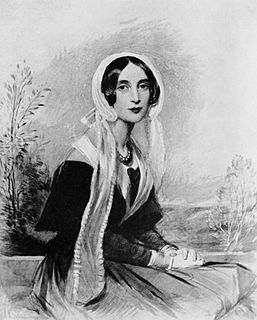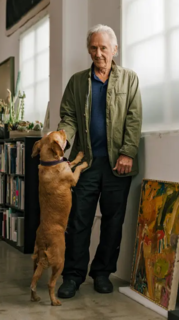A Quote by Janet Fitch
That was the thing about words, they were clear and specific-chair, eye, stone- but when you talked about feelings, words were too stiff, they were this and not that, they couldn't include all the meanings. In defining, they always left something out.
Related Quotes
He should have known better because, early in his learnings under his brother Mahmoud, he had discovered that long human words (the longer the better) were easy, unmistakable, and rarely changed their meanings, but short words were slippery, unpredictable changing their meanings without any pattern. Or so he seemed to grok. Short human words were never like a short Martian word - such as grok which forever meant exactly the same thing. Short human words were like trying to lift water with a knife. And this had been a very short word.
Our words had to be circumspect. We could not write anything too negative about our circumstances. This was tricky, since the very form of a married woman's letter needed to include the usual complaints -- that we were pathetic, powerless, worked to the bone, homesick, and sad. We were supposed to speak directly about our feelings without appearing ungrateful, no-account, or unfilial.
Congratulations," he said, his voice dry. "You finally managed to find a woman as tragically noble as yourself. I didn't think one existed." "I'm not tragic." Kaldar held up his hand. "Spare me. Some children are born wearing a silk shirt; you were born wrapped in melancholy. When they slapped you to make you cry, you just sighed heavily and a single tear rolled from your eye." He dragged his finger from the corner of his left eye to his cheek. " Your first words were probably 'woe is me.'" "My first words were 'Kaldar, shut up!' because you talked too much. Still do.
Harry constantly repeated Dumbledore's final words to himself. "I will only truly have left this school when none here are loyal to me. ... Help will always be given at Hogwarts to those who ask for it. "But what good were these words? Who exactly were they supposed to ask for help, when everyone was just as confused and scared as they were?
The last time I talked to Axl was in 1996. That was the last time we exchanged any sort of words. There was a rumor that I talked to him a while back [and asked to rejoin the band]. I did go to his house one night, and I talked to his assistant about something that had to do with this lawsuit that we were involved in. But it got turned into something else. He went out and made a press release that said I actually spoke to him, which was all bullshit. I was really shocked.
So when you're talking about lyrics in the context of music, it's not just about what the words mean, and what you were thinking about when you wrote it. It's not cognitive in that same way. It's almost like music turns words into touch, which is hard to describe, like the feeling of your shirt on your back. It's a pretty delicate thing to try to put into words. You just feel it.
The unusual thing about doing street poster art - or something with a conscious social critique in it - is that the artist thinks they're a little in control, focusing and trying to make a specific point. But even then, when you look at it a few years later, you realize you were just working through some of the usual feelings you were going through during that time.
As usual, it occurred to me that words were the only thing that could possibly save me from this situation. This was a characteristic misunderstanding on my part. When action was needed, I was absorbed in words; for words proceeded with such difficulty from my mouth that I was intent on them and forgot all about action. It seemed to me that actions, which are dazzling, varied things, must always be accompanied by equally dazzling and equally varied words.
The Rolling Stones were an inkling towards an appreciation of the unity of music, dance and words. Any of the black R&B people who had a stage show that involved dancing, music and words did the same thing, except that I thought Jagger's words were good, his music was good and his dancing was good. I spoke to him about Blake and tried to get him to sing [William] Blake's The Grey Monk, to use his words as lyrics. He didn't do it. In the end, I did it myself.
It's a peculiarity of the Norwegian culture and of the English and American, too, that men are not supposed to cry. Stiff upper lip and all that. But the Vikings cried like women in public or privately. They soaked their beards with tears and were not one bit ashamed about it. Yet, they were as quick to draw their swords as they were to shed tears. So, what's all this crap about men having to hold in their sorrow and grief and disappointment?

































